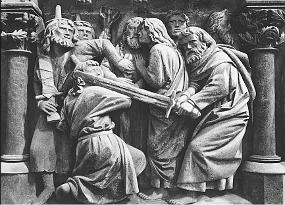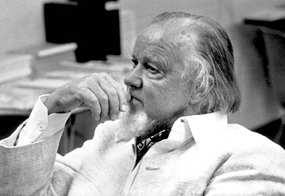 Recent world and national events have brought increased attention to issues of the right to bear arms and of personal defense. These important issues deserve discussion.
Recent world and national events have brought increased attention to issues of the right to bear arms and of personal defense. These important issues deserve discussion.
Many Christians cite one particular passage from the Gospel of Luke as a means to justify personal defense and counterattacking attackers. Good Bible exegesis requires us to look at verses in their context and to resist the tendency to build an entire theology from a lone Scripture. (Going forward in this post, readers will need to agree that such a philosophy is wise or else we will have no common ground from which to work.)
The Bible demands we understand its contents in context, which ranges from the entirety of the Scriptures down to “scenes” within the biblical narrative. Get too granular and context is lost. I would go so far as to say misunderstanding context is the major error committed with biblical texts. This happens, in part, because we mistakenly reduce the Bible to chapters and verses, artificial points of organization that were added in the 16th century, long after the canon was approved. The original text contains no chapter and verse numbers. Chapters and verses compartmentalize the text, and this works against understanding a broader context.
Before we exegete the Luke passages, a personal disclosure: My father was a lifetime NRA member, and I grew up with guns in my household. In my youth, I won marksmanship awards. Later, I taught marksmanship and gun safety. I am experienced with personal firearms. Readers should know this because I want the Scriptures to stand by themselves and not on me as a biased interpreter.
Take time to read the Luke passage in its entirety below:
And he said to them, “When I sent you out with no moneybag or knapsack or sandals, did you lack anything?” They said, “Nothing.” He said to them, “But now let the one who has a moneybag take it, and likewise a knapsack. And let the one who has no sword sell his cloak and buy one. For I tell you that this Scripture must be fulfilled in me: ‘And he was numbered with the transgressors.’ For what is written about me has its fulfillment.” And they said, “Look, Lord, here are two swords.” And he said to them, “It is enough.”
And he came out and went, as was his custom, to the Mount of Olives, and the disciples followed him. And when he came to the place, he said to them, “Pray that you may not enter into temptation.” And he withdrew from them about a stone’s throw, and knelt down and prayed, saying, “Father, if you are willing, remove this cup from me. Nevertheless, not my will, but yours, be done.” And there appeared to him an angel from heaven, strengthening him. And being in an agony he prayed more earnestly; and his sweat became like great drops of blood falling down to the ground.
And when he rose from prayer, he came to the disciples and found them sleeping for sorrow, and he said to them, “Why are you sleeping? Rise and pray that you may not enter into temptation.”
While he was still speaking, there came a crowd, and the man called Judas, one of the twelve, was leading them. He drew near to Jesus to kiss him, but Jesus said to him, “Judas, would you betray the Son of Man with a kiss?” And when those who were around him saw what would follow, they said, “Lord, shall we strike with the sword?” And one of them struck the servant of the high priest and cut off his right ear. But Jesus said, “No more of this!” And he touched his ear and healed him.
Then Jesus said to the chief priests and officers of the temple and elders, who had come out against him, “Have you come out as against a robber, with swords and clubs? When I was with you day after day in the temple, you did not lay hands on me. But this is your hour, and the power of darkness.” Then they seized him and led him away, bringing him into the high priest’s house, and Peter was following at a distance.
—Luke 22:35-54 ESV
The setting comes at the end of Jesus’ earthly ministry. He will soon be crucified. He is gathered with His disciples in the Upper Room, having celebrated the Passover meal and having dismissed Judas, who will return with the Jewish governing authorities that will arrest Jesus.
Jesus begins by referring to His earlier sending out of 72 disciples in pairs, which included the apostles, to minister to people in the region (see Luke 10:1-23 for details).
Highlighted in the Scriptures above is the contentious verse, Luke 22:36:
He said to them, “But now let the one who has a moneybag take it, and likewise a knapsack. And let the one who has no sword sell his cloak and buy one….”
Many people stop right there. That’s not good exegesis, though. This is especially the case because Jesus isn’t finished talking yet! He goes on in verse 37 to explain why He says this:
“…For I tell you that this Scripture must be fulfilled in me: ‘And he was numbered with the transgressors.’ For what is written about me has its fulfillment.”
With all that will go down in the next few days, why get a sword right that moment? For personal defense months after Jesus is gone? Or to fulfill in the next few hours a specific prophecy about Jesus as Messiah?
The prophecy in question comes from Isaiah 53, which is the great Old Testament foretelling of the personal work and characteristics of the Messiah. I would recommend reading the entire chapter for best context, but this is the passage cited:
Yet it was the will of the LORD to crush him; he has put him to grief; when his soul makes an offering for guilt, he shall see his offspring; he shall prolong his days; the will of the LORD shall prosper in his hand. Out of the anguish of his soul he shall see and be satisfied; by his knowledge shall the righteous one, my servant, make many to be accounted righteous, and he shall bear their iniquities. Therefore I will divide him a portion with the many, and he shall divide the spoil with the strong, because he poured out his soul to death and was numbered with the transgressors; yet he bore the sin of many, and makes intercession for the transgressors.
—Isaiah 53:10-12 ESV
The sword-bearing company of the Messiah puts Him among the transgressors, men of violence, which we will soon see played out.
Then, in verse 38 of Luke 22, Jesus and His disciples further discuss His statement about swords:
And they said, “Look, Lord, here are two swords.” And he said to them, “It is enough.”
What does Jesus mean by “It is enough”? Enough swords to arm each of them for personal defense? No, there were 11 disciples now. Enough swords to provide self-defense for pairs of them, as they had been sent out earlier with the others? No, since there were only two swords for five and a half pairs.
No, the two swords were enough to fulfill the prophecy of Jesus being numbered among the transgressors.
Jesus and His disciples then move to the Mount of Olives. Jesus warns them not to fall into temptation. What might that temptation be? To fall asleep at a time when Jesus needs their comfort is certainly one case. But what else might a band of armed men be tempted to do? What is the human reaction to an upcoming confrontation that might go from temptation to action?
After the disciples did succumb to the temptation to sleep, Jesus said this in verse 46:
“Why are you sleeping? Rise and pray that you may not enter into temptation.”
They already failed to stay awake. but Jesus continues to refer to temptation. Why?
Then the government party arrives with Judas to arrest Jesus, and the disciples say this:
“Lord, shall we strike with the sword?” And one of them struck the servant of the high priest and cut off his right ear.
Transgression. Violence. Notice that Jesus did not give an affirmative response to the disciples’ question. We know from parallel accounts of this incident in Mark 14, John 18, and Matthew 26 that the impetuous Simon Peter was the attacker, who took it upon himself to provide an answer. Did he give into the temptation to use violence to resolve the issue from his limited perspective? Notice what Jesus says in verse 51:
“No more of this!” And he touched his ear and healed him.
Jesus rebuked Peter’s action against a perceived attacker. Further, Jesus demonstrated the proper counter-response to violence: healing.
The Matthew parallel passage expands further:
Then Jesus said to him, “Put your sword back into its place. For all who take the sword will perish by the sword. Do you think that I cannot appeal to my Father, and he will at once send me more than twelve legions of angels? But how then should the Scriptures be fulfilled, that it must be so?”
—Matthew 26:52-54 ESV
Several notable revelations here:
1. All who take the sword will perish by the sword. Jesus does not see the sword as an answer; it will boomerang on those who use it.
2. Supernatural options greater than the sword exist. In this case, angels. Solutions exist that are unseen by those who are blind to them.
3 The sword was wielded so that the Isaiah passage about transgressors might be fulfilled.
Jesus ends the Luke passage with His statement in verses 52 and 53:
“Have you come out as against a robber, with swords and clubs? When I was with you day after day in the temple, you did not lay hands on me. But this is your hour, and the power of darkness.”
By their actions, what did the governmental authorities consider Jesus and His disciples? Robbers, transgressors. Later, who did the people choose to free instead of Jesus? Barabbas, a robber. Who was Jesus later crucified between? Robbers.
Isaiah prophecy fulfilled: The Messiah, Jesus, was numbered among the transgressors.
Now that we have explored this passage from Luke 22, what should we ask ourselves?
Are transgressors considered to be “good people”? In what ways should Christians aim to be transgressors or not?
According to Jesus, what is the end of those who take the sword?
According to Jesus, are there other options beside the sword? What might they be?
In what ways are Christians tempted to respond to difficult situations with human solutions rather than spiritual ones?
Is Luke 22:36 a proof text for Christians to take up arms in self-defense? Why or why not?
In closing, I offer this passage on the role of the Christian to this world as the representative of the King within the Kingdom of God:
Therefore, if anyone is in Christ, he is a new creation. The old has passed away; behold, the new has come. All this is from God, who through Christ reconciled us to himself and gave us the ministry of reconciliation; that is, in Christ God was reconciling the world to himself, not counting their trespasses against them, and entrusting to us the message of reconciliation. Therefore, we are ambassadors for Christ, God making his appeal through us. We implore you on behalf of Christ, be reconciled to God. For our sake he made him to be sin who knew no sin, so that in him we might become the righteousness of God.
—2 Corinthians 5:17-21 ESV


 He understood that Christians must address broken systems. Unless the Christian brings truth to bear on systems, most larger changes will be superficial—or nonexistent.
He understood that Christians must address broken systems. Unless the Christian brings truth to bear on systems, most larger changes will be superficial—or nonexistent.